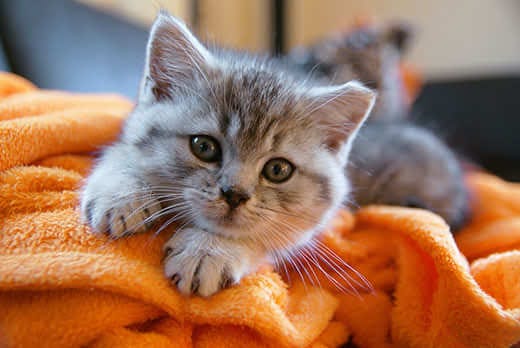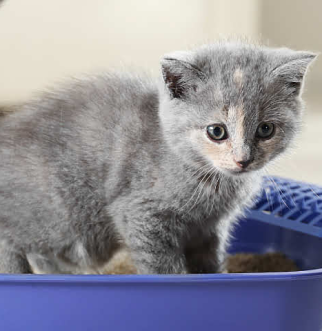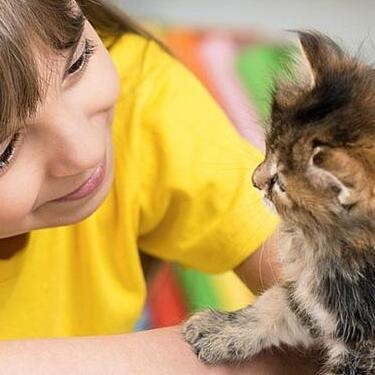
-
Find the right food for your pet
Take this quiz to see which food may be the best for your furry friend.
Find the right food for your pet
Take this quiz to see which food may be the best for your furry friend.
Featured products
 Adult Healthy Cuisine Roasted Chicken, Carrots & Spinach Stew Dog Food
Adult Healthy Cuisine Roasted Chicken, Carrots & Spinach Stew Dog FoodDelicious roasted chicken paired with tender vegetables in a succulent stew
Shop Now Small & Mini Savory Stew with Chicken & Vegetables Dog Food
Small & Mini Savory Stew with Chicken & Vegetables Dog FoodA delicious complement to the nutrition of Science Diet Small & Mini 7+ dog food
Shop Now Adult 7+ Perfect Digestion Chicken, Whole Oats & Brown Rice Recipe Dog Food
Adult 7+ Perfect Digestion Chicken, Whole Oats & Brown Rice Recipe Dog FoodScience Diet's breakthrough nutrition supports ultimate digestive well-being & healthy microbiome for dogs age 7+
Shop NowFeatured products
 Adult Savory Entrée Can Variety Pack Cat Food
Adult Savory Entrée Can Variety Pack Cat FoodPrecisely balanced nutrition with the delicious taste of savory minced chicken to help fuel the energy needs of cats during the prime of their life
Shop Now Adult 7+ Tender Tuna Dinner Cat Food
Adult 7+ Tender Tuna Dinner Cat FoodWith delicious chunks in a decadent gravy
Shop Now Adult 7+ Senior Vitality Chicken & Vegetable Stew Cat Food
Adult 7+ Senior Vitality Chicken & Vegetable Stew Cat FoodImproves Everyday Ability to Get Up & Go
Shop Now -
Dog
- Dog Tips & Articles
-
Health Category
- Weight
- Food & Environmental Sensitivities
- Urinary
- Digestive
- Joint
- Kidney
-
Life Stage
- Puppy Nutrition
- Adult Nutrition
- Senior Nutrition
Cat
- Cat Tips & Articles
-
Health Category
- Weight
- Skin & Food Sensitivities
- Urinary
- Digestive
- Kidney
-
Life Stage
- Kitten Nutrition
- Adult Nutrition
Featured articles
 Does My Pet Hate Me?
Does My Pet Hate Me?Learn tips for bonding with your pet if you've ever thought, 'My dog doesn't like me, or 'Why do I have a standoffish cat?'
Read More Do Dogs and Cats have Belly Buttons?
Do Dogs and Cats have Belly Buttons?Learn whether cats & dogs have belly buttons like humans, what the function is, and if there are any health concerns associated with it.
Read More Why Are Dogs and Cats So Cute?
Why Are Dogs and Cats So Cute?If waggy puppy dog tails and furry kitten yawns make you swoon, you're not alone. Why are cats so cute? And, dogs too! Let's find out!
Read More -


The condition known as pneumonia refers to an infection of the lungs. Many infectious organisms, ranging from bacterium, viruses, fungi and even parasites, can cause cat pneumonia, and some of pneumonia's clinical signs may include vomiting, hiding and much more. However, while cat pneumonia signs can be quite alarming and serious, most cats do recover once they receive proper medical attention. Read on to learn more about how pneumonia affects cats and what you can do to help.
What Is Pneumonia in Cats?
Pneumonia in cats is defined as inflammation of the lungs, usually caused by infectious agents. It is a serious condition in which the air sacs fill with pus and other liquid, causing the patient to have difficulty breathing. Pneumonia can manifest in one or multiple lung lobes, depending on the underlying cause, and the portions of lung affected may help give your veterinarian clues as to how the pneumonia developed.
Cat Pneumonia Signs
An important factor to take into consideration about cat pneumonia is that it usually follows an upper respiratory infection. Prompt veterinary intervention will help to prevent a mild upper respiratory infection (sneezing, runny eyes and nose) from progressing into the lower respiratory tract, where it becomes pneumonia. Clinical signs may include:

- Discharge from the nose (mucus, pus or blood)
- Dry cough
- Productive coughing that may include mucus or blood
- Rapid, shallow breathing
- Labored or difficult breathing, shortness of breath
- Lethargy
- Shaking or tremors
- Vomiting
- Hiding
- Decreased appetite
- Decreased elimination habits
- Signs of pain associated with breathing in or out
- Grunting or rattling noises associated with breathing
- Increased aggression
Pneumonia in cats is more prevalent in both young kittens and older cats. Unlike the seasonal flu resulting in pneumonia in people, it does not follow a seasonal pattern in cats. Patients with an unhealthy body condition score (both overweight and underweight cats) may be more likely to develop the condition.
Because some infectious agents that cause cat pneumonia are spread from cat to cat, either by coughing or through direct contact with the infected cat's saliva or mucus, cats in multicat households, outdoor cats and cats living in rescue groups are at higher risk to develop pneumonia. Additionally, if a viral infection has weakened a patient's immune system, bacteria may begin to grow in the lung, adding a second infection to the original one.
Diagnosing Pneumonia in Cats
Bloodwork and x-rays of your cat's lungs will be needed to diagnose pneumonia. This blood work typically includes checking your cat for heartworm disease, which doesn't technically cause pneumonia but presents with very similar signs and is an important disease to rule out. Although uncommon, there are also other types of parasites that can infect cat lungs that your vet will only be able to identify by looking at a stool sample. In cases where basic tests aren't revealing a clear answer, your vet may consider looking at a sample of fluid from your cat's lungs under a microscope to look for evidence of bacteria, fungus or parasites. They may even decide that a referral is necessary, like to a specialist to visually inspect the lungs and collect samples with a specialized video camera while your cat is under anesthesia.


Tasty Tips
Treating Pneumonia in Cats
When cat pneumonia is caused by a viral agent, there is usually no specific antiviral treatment. Supportive care, such as IV fluids and medications for fever control and cough, are prescribed as needed. If your cat's appetite is poor, your vet may recommend switching them to a more calorically dense food while they recover to ensure their nutritional needs are being met. They may also recommend subcutaneous fluids to help your cat stay hydrated as well as using a cool mist humidifier. Cough suppressants are often avoided because coughing can actually help your cat clear the excessive secretions caused by the infection. Your vet will determine if these medications are helpful or harmful based on each kitty's presentation and clinical evaluation. Viral pneumonia often improves after a few days, although the condition may linger for several weeks. Repeated X-rays may be warranted throughout the course of treatment.
Because it is often difficult to tell whether the pneumonia is caused by a virus or by bacteria, your vet may prescribe an antibiotic. All antibiotics should be taken for the full prescribed course and at the specific dosage recommended. You may be tempted to discontinue them early if your cat shows clinical signs of improvement, but you should not do so. Your cat will hopefully feel better after only a few days, but some bacteria may still remain, and the infection might return unless the entire course is completed.
For fungal pneumonia as well as parasitic causes of pneumonia, such as lungworms, treatment is specific to the causative agent. Antifungal medications and antiparasitics are prescribed on a case-by-case assessment. With proper medical evaluation and treatment, pneumonia in cats today is usually treatable. However, without prompt intervention, it can be life-threatening.
Keeping your cat healthy and up to date on preventive care and vaccines as well as parasite control is the best way to prevent pneumonia in your cat. For instance, according to Cornell University, feline calicivirus is a common cause of pneumonia in unvaccinated kittens and cats. Preventing unnecessary exposure to other cats outside the household, in addition to ensuring that your cat does not have contact with strays, is also important in preventing a cat-to-cat transmission of the infectious agents that cause pneumonia.


Dr. Laci Schaible is a small animal veterinarian, veterinary journalist, and a thought leader in the industry. She received her Doctor of Veterinary Medicine from Texas A&M University and her Masters in Legal Studies from Wake Forest University.
Related products
Related articles

How do you get a cat to lose weight? Learn all about cat foods for weight loss, including how to choose weight control cat food and exercise tips.

What is the best food for an overweight cat? Learn all about weight control food for cats, including what's in it and how it works.

Cats are naturally very clean and chances are your kitten will already have learned how to use the litter box from her mother before she comes to live with you.

Discover how to train your cat, starting with very basic first steps that both reward good behavior and discourage the bad.

Put your cat on a diet without them knowing
Our low calorie formula helps you control your cat's weight. It's packed with high-quality protein for building lean muscles, and made with purposeful ingredients for a flavorful, nutritious meal. Clinically proven antioxidants, Vitamin C+E, help promote a healthy immune system.
Put your cat on a diet without them knowing
Our low calorie formula helps you control your cat's weight. It's packed with high-quality protein for building lean muscles, and made with purposeful ingredients for a flavorful, nutritious meal. Clinically proven antioxidants, Vitamin C+E, help promote a healthy immune system.

